A review of 160 published studies confirms a compelling connection between a positive state of mind and overall health and longevity. Ed Diener of the University of Illinois and colleagues found that subjects who reported high subjective well-being—life satisfaction, absence of negative emotions, optimism and positive emotions—enjoyed better health and longer lives.
As well, the evidence associating a positive mind-set and enjoyment of life with better health and longer life was stronger even than that linking obesity to reduced longevity: “Combined with experimental human and animal research, as well as naturalistic studies of changes of subjective well-being and physiological processes over time, the case that subjective well-being influences health and longevity in healthy populations is compelling.” The researchers submit that positive feelings “predict longevity and health beyond negative feelings.”
Diener, E., and Chan, M.Y. (2011). Happy people live longer: Subjective well-being contributes to health and longevity. Appl Psych. 3(1):1–43.
[Are you looking for health, muscle and the amazing anti-aging benefits of resistance training? Get the new e-book by Steve and Becky Holman, Old School, New Body. Read the Iron Man magazine review here.]
Exercise Builds the Brain
Since the 1960s scientific research has revealed that adult brain cells can regenerate—a process known as neurogenesis. Suk-Yu Yau of China Medical University Hospital in Taiwan and colleagues have discovered that neurogenesis is linked to the benefits of exercise as a stress reducer.
Inasmuch as previous research has shown that exercise can improve mood and cognition and has demonstrated that a deficit in adult neurogenesis may result in depressive disorders, the team examined the relationship between exercise as a way of combating stress and the possibility that exercise may encourage neurogenesis.
According to the researchers, one important neurogenic “zone” in the adult brain is the hippocampus, an area involved in memory and emotional regulation. The role of new neurons in hippocampal functions is not well defined, but the team reports that recent findings suggest that “hippocampal neurogenesis plays a role in the beneficial effects of exercise in countering stress.”
Yau, S-K., Lau, B. W-M., and So, K-F. (2011). Adult hippocampal neurogenesis: A possible way how physical exercise counteracts stress. Cell Transplant. 20(1):99-111.
—Dr. Bob Goldman
www.WorldHealth.net
Editor’s note: For the latest information and research on health and aging, subscribe to the American Academy of Anti-Aging Medicine e-zine free at WorldHealth.net.
Dr. Robert M. Goldman MD, PhD, DO, FAASP has spearheaded the development of numerous international medical organizations and corporations. Dr. Goldman has served as a Senior Fellow at the Lincoln Filene Center, Tufts University; as an Affiliate at the Philosophy of Education Research Center, Graduate School of Education, Harvard University, He is Clinical Consultant, Department of Obstetrics and Gynecology, Korea Medical University; and Professor, Department of Internal Medicine at the University of Central America Health Sciences, Department of Internal Medicine. Dr. Goldman holds the positions of Visiting Professor, Udayana University School of Medicine, Indonesia; Visiting Professor, Huazhong University of Science & Technology Tong Ji Medical School, China; Visiting Professor, The Wuhan Institute of Science & Technology, China; Visiting Professor at Hainan Medical College, China; and Visiting Professor, School of Anti-Aging, Aesthetics and Regenerative Medicine, UCSI University, Malaysia. Dr. Goldman is a Fellow of the American Academy of Sports Physicians and a Board Diplomat in Sports Medicine and Board Certified in Anti-Aging Medicine. Dr. Goldman is a Fellow of the American Academy of Sports Physicians and a Board Diplomat in Sports Medicine and Board Certified in Anti-Aging Medicine. He has overseen cooperative research agreement development programs in conjunction with such prominent institutions as the American National Red Cross, the US National Aeronautics and Space Administration (NASA), the Department of Defense, and the FDA’s Center for Devices & Radiological Health.
Dr Goldman was awarded the 2012 LifeTime Achievement Award in Medicine &Science. Dr. Goldman is the recipient of the ‘Gold Medal for Science, the Grand Prize for Medicine, the Humanitarian Award, and the Business Development Award. He received honors from Minister of Sports and government Health officials of numerous nations. In 2001, Excellency Juan Antonio Samaranch awarded Dr. Goldman the International Olympic Committee Tribute Diploma for contributions to the development of sport & Olympism.
In addition, Dr. Goldman is a black belt in karate, Chinese weapons expert, and world champion athlete with over 20 world strength records, he has been listed in the Guinness Book of World Records. Some of his past performance records include 13,500 consecutive situps and 321 consecutive handstand pushups. Dr. Goldman was an All-College athlete in four sports, a three time winner of the John F. Kennedy (JFK) Physical Fitness Award, was voted Athlete of the Year, was the recipient of the Champions Award, and was inducted into the World Hall of Fame of Physical Fitness. Dr. Goldman was awarded the Healthy American Fitness Leader Award from the President’s Council on Physical Fitness & Sports and U.S. Chamber of Commerce. Dr. Goldman is Chairman of the International Medical Commission overseeing sports medicine committees in over 184 nations. He has served as a Special Advisor to the President’s Council on Physical Fitness & Sports. He is founder and international President Emeritis of the National Academy of Sports Medicine and the cofounder and Chairman of the American Academy of Anti-Aging Medicine (A4M). Dr. Goldman visits an average of 20 countries annually to promote brain research and sports medicine programs.












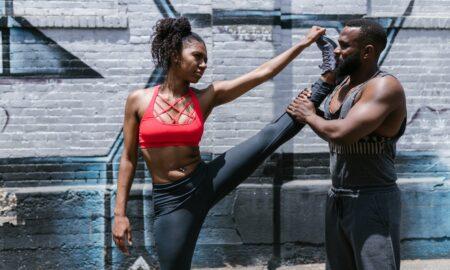
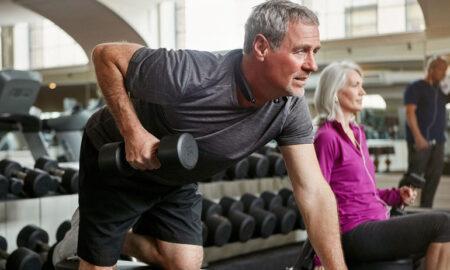
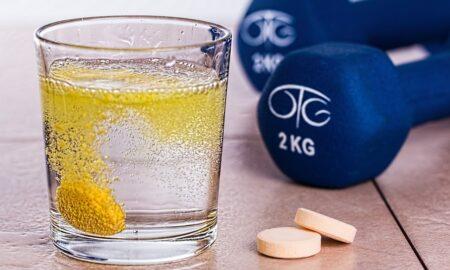

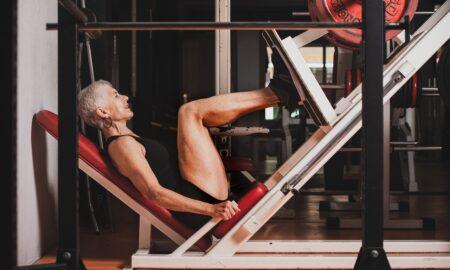
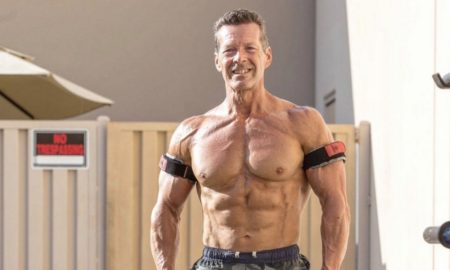

You must be logged in to post a comment Login